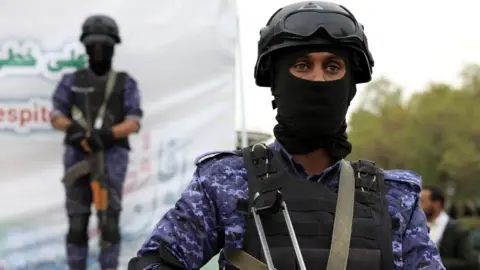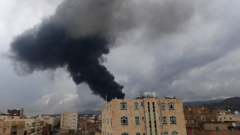The newly established rules by the Syrian tourism ministry specify that women must abide by modest swimwear regulations at public beaches and swimming pools. The burkini—an attire that allows women to swim while covering their bodies except for the face, hands, and feet—has been defined as compliant clothing under these directives. The official Syrian state news channel, Al-Ikhbariyah al-Suriyah, communicated that these regulations aim to enhance public safety standards and uphold societal decency.
The decree also noted that private beaches, swimming clubs, and hotels rated four stars or above are exempt from these mandates. Traditionally, women in Syria generally dress modestly while at the beach, although some have previously chosen to wear Western-style bathing suits. The new regulations specify that beachgoers must don “more modest swimwear,” emphasizing “the burkini or swimming clothes that cover more of the body.” Additionally, women are required to wear loose clothing or cover-ups while transitioning between swimming areas. Exiting the swimming area in swimwear without appropriate cover is expressly forbidden.
Male beachgoers are also subject to apparel regulations, which necessitate wearing a shirt when not swimming and prohibiting bare-chested appearances outside swimming zones. The guidelines acknowledge that typical Western swimwear may be acceptable in exempted setups “within the limits of public taste,” underscoring an effort to balance modern styles with traditional values. Other mandated dress codes call for loose clothing that covers the shoulders and knees, steering clear of see-through or form-fitting garments.
The directive did not articulate any penalties for non-compliance or details regarding enforcement measures. In addition to swimwear regulations, the new guidelines encompassed safety protocols related to beach and pool activities.
In recent political history, a shift in governance occurred when Islamist rebel leaders, including Ahmed al-Sharaa, ousted Bashar al-Assad’s regime in December, concluding years of civil strife. Al-Sharaa, who now serves as the interim president, has expressed aspirations for an inclusive government. Shortly following his ascent to power, he vowed to support education for women and articulated a desire to avoid turning Syria into a version of Afghanistan, known for its oppressive policies towards women.
In March, al-Sharaa signed a constitutional declaration that outlined a five-year transitional period, maintaining that Islam would be declared the president's faith while recognizing Islamic law as the primary source of legislation. Nonetheless, it assured rights for women, along with freedom of expression and the press, indicating a potential for evolving societal norms amid shifting political landscapes.
The decree also noted that private beaches, swimming clubs, and hotels rated four stars or above are exempt from these mandates. Traditionally, women in Syria generally dress modestly while at the beach, although some have previously chosen to wear Western-style bathing suits. The new regulations specify that beachgoers must don “more modest swimwear,” emphasizing “the burkini or swimming clothes that cover more of the body.” Additionally, women are required to wear loose clothing or cover-ups while transitioning between swimming areas. Exiting the swimming area in swimwear without appropriate cover is expressly forbidden.
Male beachgoers are also subject to apparel regulations, which necessitate wearing a shirt when not swimming and prohibiting bare-chested appearances outside swimming zones. The guidelines acknowledge that typical Western swimwear may be acceptable in exempted setups “within the limits of public taste,” underscoring an effort to balance modern styles with traditional values. Other mandated dress codes call for loose clothing that covers the shoulders and knees, steering clear of see-through or form-fitting garments.
The directive did not articulate any penalties for non-compliance or details regarding enforcement measures. In addition to swimwear regulations, the new guidelines encompassed safety protocols related to beach and pool activities.
In recent political history, a shift in governance occurred when Islamist rebel leaders, including Ahmed al-Sharaa, ousted Bashar al-Assad’s regime in December, concluding years of civil strife. Al-Sharaa, who now serves as the interim president, has expressed aspirations for an inclusive government. Shortly following his ascent to power, he vowed to support education for women and articulated a desire to avoid turning Syria into a version of Afghanistan, known for its oppressive policies towards women.
In March, al-Sharaa signed a constitutional declaration that outlined a five-year transitional period, maintaining that Islam would be declared the president's faith while recognizing Islamic law as the primary source of legislation. Nonetheless, it assured rights for women, along with freedom of expression and the press, indicating a potential for evolving societal norms amid shifting political landscapes.


















